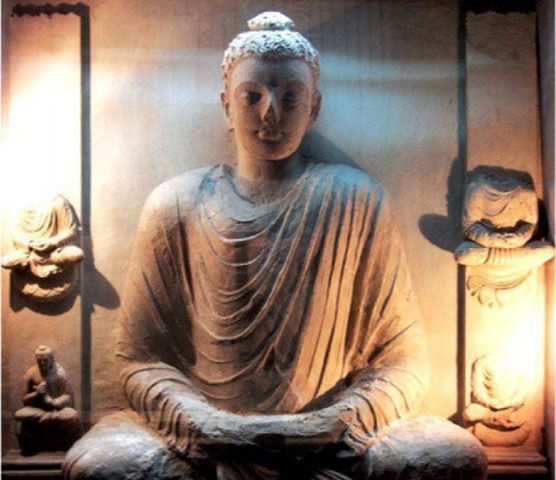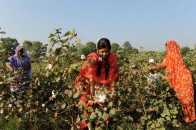Taxila Museum gets a digital makeover
UNESCO and SDC join hands to improve museum’s educational role

UNESCO and SDC join hands to improve museum’s educational role
PHOTO: EXPRESS
However, if children are offered the opportunity of combining their love for technology, and efforts are made by the development community to make museums interesting again, it exponentially increases the chance that children would develop an inclination and sense of appreciation for the objects carefully conserved and displayed behind locked cases.
Personal quarters of Ruth Pfau converted into a museum
That was the forethought that went into the project designed by UNESCO with the financial support of SDC (The Swiss Agency for Development and Cooperation). The project’s closing ceremony was conducted on February 14, 2018.
A one-and-a-half year venture, the project was broken down into three components; firstly, museum staff were trained and capacitated to develop a digital inventory of museum artefacts; secondly, the educational role of the museum was improved by developing a web application with QR codes that allow visitors to engage with the artefacts safely and securely; thirdly, in order to generate interest among children by creating interactive material for them to learn about the Gandharan civilizations, and encourage them to become “Ambassadors of cultural heritage”, the project also trained teachers to educate students about heritage.
The museum, which was subject to disappearing artefacts and a lack of informational plaques next to display cases, now hosts digital kiosks that anyone with an Android-enabled phone can easily access and download (now available through Google Play store). The online application will provide a new platform that can serve as a learning opportunity for children and adults alike. The bilingual application, developed by the Technology for People’s Initiative (TPI) at LUMS is audio and text enabled, with pictures and panoramas of the Taxila World Heritage Site.
Mind the gap: North's 'army of beauties' reveal cultural divide
The educational activities engaging schools from within the Taxila region were (conducted by The Little Art). They have also established a “creative space” at Taxila Museum which will house puzzles and activities for children to partake in when during their visit. Most importantly, it is through the development of creative and unconventional activities that many museums are getting children interested in heritage.
The staff at Taxila Museum have been working on developing the inventory- with close to 23,000 products on display and in storage, this is no easy feat.
The closing event was attended by development partners, members of civil society, academics, schoolchildren, teachers, and members of the government. The opening address was delivered by UNESCO Representative Director for Pakistan Vibeke Jensen followed by the Swiss Ambassador to Pakistan. Thomas Kolly.
Published in The Express Tribune, February 15th, 2018.


















COMMENTS
Comments are moderated and generally will be posted if they are on-topic and not abusive.
For more information, please see our Comments FAQ